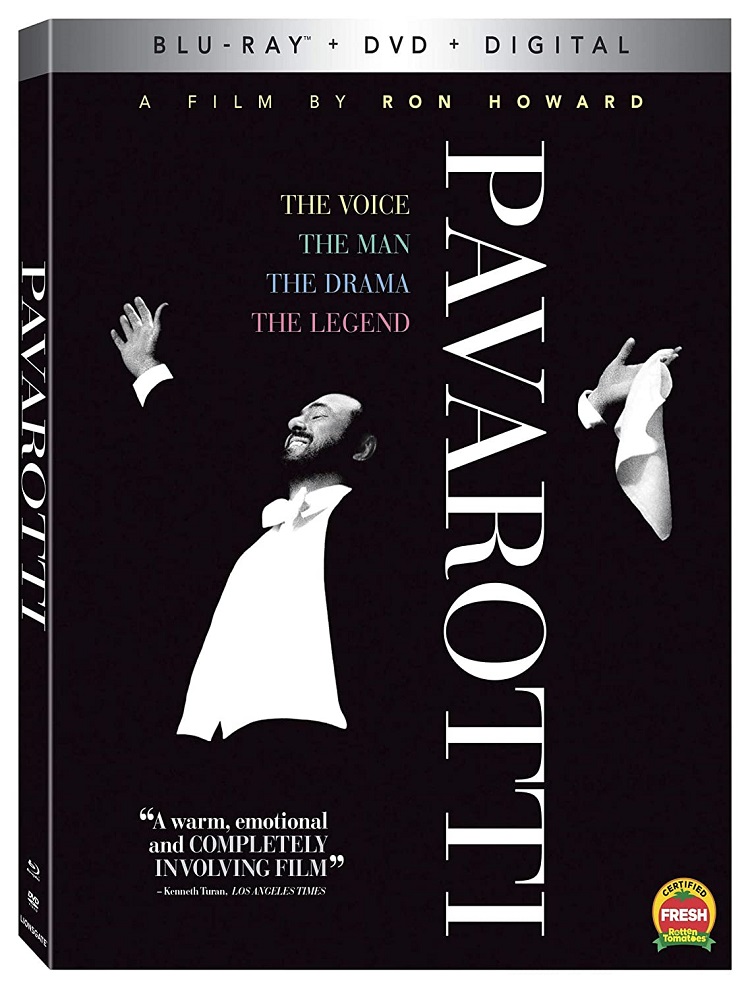
Luciano Pavarotti was one of the best opera singers to have lived, and his memory will live on forever in the music he sang. But, like all other beloved figures, there’s more to him than what is seen in the public atmosphere. If you’re expecting Ron Howard to simply give viewers a glimpse into the life of the late tenor and how he rose to fame, Pavarotti will not disappoint. It’s insightful and is especially a good starting point for those unfamiliar with Pavarotti’s music. But for those who are lifelong fans – or even those who are simply aware of his music – looking for something more in-depth, showing both the good and the bad of his life, you’ll have to wait for another documentary to come along and do just that.
That’s not to say that Howard’s examination of Pavarotti is bad. There is a lot that Howard explores in the nearly two-hour runtime, and it’s intriguing and also entertaining at the same time. But there’s this nagging feeling that there needs to be more than just an adoration of Pavarotti, which is mostly what Howard does. Granted, Pavarotti certainly had his charm and charisma, and the passion for his career is obviously present in his performances. Even when not onstage, Pavarotti comes off as someone who was a delight to be around. His smile in nearly every photo and video is infectious, and his interactions with people showed how friendly he was to everyone. His impact was well known, but Howard only goes to a few extremes without getting all the meat of his life story.
A lot of the documentary is devoted to Pavarotti’s early years, showing his family life and how his father was not just a baker; he was also a tenor. And if you ever asked Luciano, he always responded with saying his father was the better singer. It’s touching, and it shows how devoted of a family man Luciano was. Even when he had his own family, he would spend whatever time he could get with them.
Not only was he big on family; he also had a love for food. One of the best moments in the documentary talks about how there were suitcases of food packed for Pavarotti to cook while he was touring in the United States. He loved to cook, and he cooked for everyone.
The people interviewed for Pavarotti all recall key moments in their relationship with the opera singer. Most of it comes across as praise or some sort of adoration. Rarely is there anything negative said by those interviewed, even when it comes to the highly-publicized love affair Pavarotti had. It’s one of the few parts of the film in which the viewer gets a little more into something that isn’t a positive about Pavarotti. There’s also another affair that never got as much attention, but Howard interviews the person involved to get her side of the story. Alas, both affairs don’t get as much detail as one would expect.
Howard doesn’t even really get into a lot of information that is easily accessible and would be interesting to hear more detail from those interviewed. One of those involves his tax-evasion case, and another is how, prior to his divorce from his first wife, he threatened to kill himself. Again, it would have made the documentary more intriguing if we got both the good and the bad of Pavarotti.
Pavarotti’s impact in the opera world is well-documented, but outside of that, there are only brief discussions and clips with those not involved in that genre. Bono of U2 is the only non-opera singer given the chance to really say something about his work with Pavarotti. There is talk about the Friends of Pavarotti concert that brought the tenor together with other well-known musicians, and a brief discussion about the friendship he had with Princess Diana. It’s as if Howard wanted to gather as much information as possible, but couldn’t find the time for everything to get proper treatment.
Again, that’s not to say that Pavarotti is bad. There are some truly touching moments shown and discussed. But there’s always more to the story than what we already know, and Howard doesn’t seem interested in exploring that side of the late tenor, as he does all the things that were/are more positive.
The people at Fathom Events were able to give those interested in the documentary an exclusive, early screening of the film. No video or audio issues to note, as everything came across clearly. There were quite a bit of slides that gave a lot more information about Pavarotti, some of which wasn’t discussed in the documentary. There was also an interview with Howard that preceded the documentary, and he discussed how the whole project came together.
Those looking to know more about Pavarotti than what’s already been previously discussed may be disappointed with what Howard has given us. But the documentary makes up for it with the collection of musical performances that are still as jaw-dropping as they were when he initially performed. Plus, a lot of the interviewees give information about Pavarotti that wasn’t previously discussed. For what it is, there is quite a bit that informs the viewer, and also delivers plenty of unexpected humor. And, based on that, it works, even if there should be more.